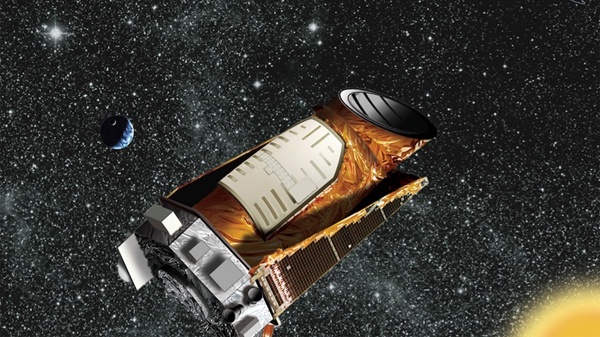
Each year, the Insight competition reminds us of how amazing our Universe is.

With Thursday's launch, SpaceX has now flown 18 mission this year, tying its record set in 2017. The company could fly as many as four more rockets this year.

Supernovae happen all the time, but this one was different. "Cow," as astronomers are calling it, was a massively bright explosion 200 million light years away.

An international team has discovered a 31-km wide meteorite impact crater buried beneath the ice-sheet in the northern Greenland. This is the first time that a crater of any size has been found under one of Earth.

Scientists studying data from the ESA Gaia spacecraft have discovered a previously unknown dwarf galaxy lurking just outside the Milky Way, an extremely low-density swarm of stars two thirds the size of Earth’s galaxy.

Studying two decades of data on Barnard’s Star, astronomers have found a rocky super-Earth with a mass of at least 2.3 times that of Earth that orbits the star every 233 days or so.

More precisely, the Milky Way collided with the second galaxy, absorbing many of its stars and spiraling out a chaotic tangle of stellar matter — birthing new stars and altering the orbits of others.

The discovery of this approximately 13.5 billion-year-old tiny star means more stars with very low mass and very low metal content are likely out there—perhaps even some of the universe's very first stars.

The novel GRAVITY instrument has discovered clumps of gas swirling around at about 30 per cent of the speed of light on a circular orbit just outside the innermost stable orbit of a four million mass black hole.

Dawn was launchd on 27 September 2007. The spacecraft found that asteroid Vesta is the parent of a specific variety of meteorites found on Earth. It also discovered that dwarf planet Ceres was once an ocean world.

No human-made object has gotten this close to the Sun. The Parker Solar Probe broke a 22 year old record by getting to within 43 million km of the Sun.

NASA's planet-hunting telescope has run out of fuel after a nine-year mission that found more than 2,600 planets orbiting other stars along with thousands of candidate worlds.

An international team studying 3200 Phaethon, a 3.6-mile-long rock believed responsible for the annual Geminid meteor shower, has revealed that the asteroid's surface exhibits a blue color.

The Dark Energy Spectroscopic Instrument, or DESI, is being assembled for a five-year mission at the prime focus of the Mayall Telescope, to measure the spectra of more than 30 million galaxies and quasars.

Two instruments aboard NASA’s Spitzer Space Telescope – the Infrared Array Camera and the Multiband Imaging Photometer – have captured a spectacular image of the Cat’s Paw Nebula.